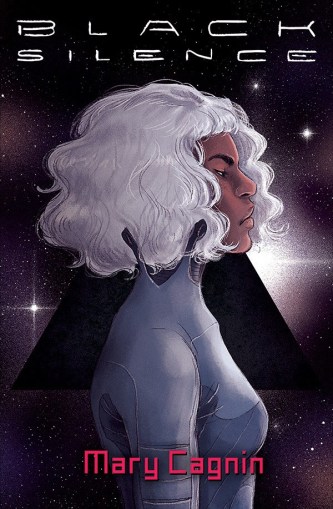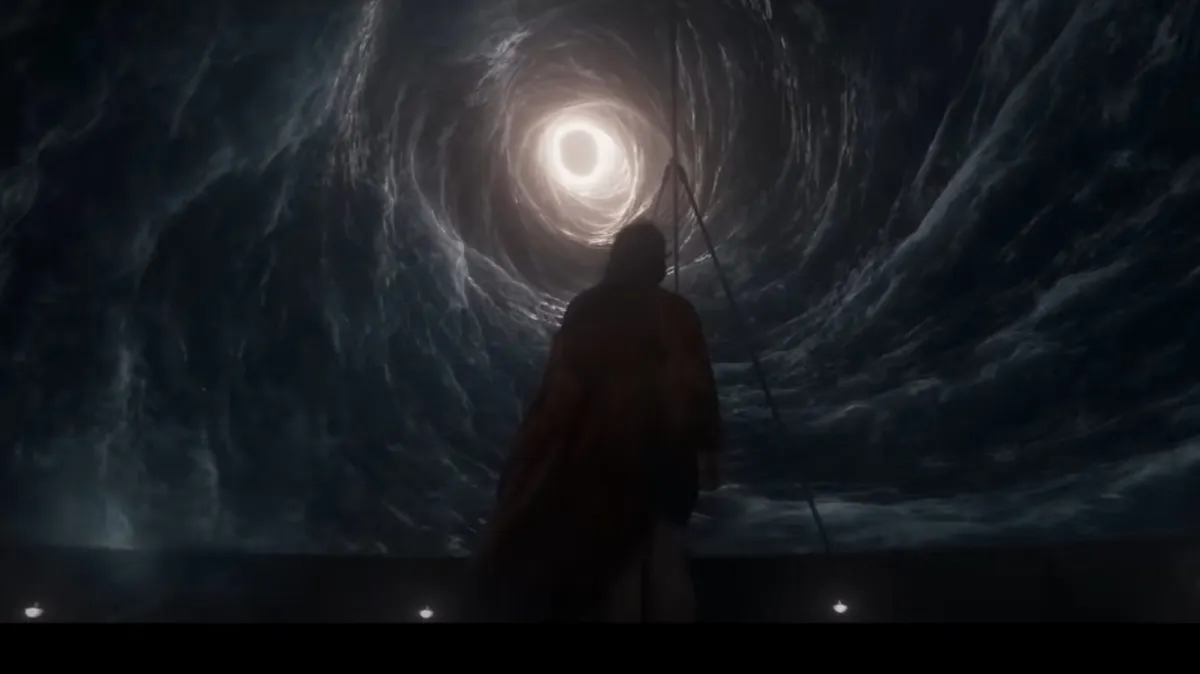Despite the fact that the hype around shows like Love Is Blind season three and The Crown season five can be felt everywhere online, they are not the most streamed show on Netflix right now. That title goes to the sci-fi mystery from the creators of Dark, 1899. The show’s premise follows a group of migrants aboard a ship, looking forward to a new beginning in the new century, startled to find a boat, similar to their own, adrift at sea. 1899 is also being accused of taking heavily from Brazilian graphic novelist Mary Cagnin’s 2016 story, Black Silence, by the artist/writer herself.
Cagnin isn’t just accusing some suspicious shots like the use of triangles and action scenes. She’s also noting that the story is plays out very similarly, even if its themes and underlying mystery are different. On that same Twitter thread, she wrote,
It’s all there: The Black Pyramid. The deaths inside the ship/ship. The multinational crew. The apparently strange and unexplained things. The symbols in the eyes and when they appear. Codes written. The voices calling to them. Subtle plot details, such as the characters’ personal dramas, including their mysterious deaths.
Later in the thread, Cagnin added, “Obviously, Black Silence is a short work, almost a short story. It is very easy, in 12 hours of projection of the series, to dilute all these ‘references,’ but the essence of what I created is there.” She also mentioned another Brazilian artist whose work has influenced non-Brazilian white creators who received international praise. The author of Life of Pi, Yann Martel, said a book review for the 1981 novella Max and the Cats by Moacyr Scliar (a story about a Jewish-German refugee of The Holocaust crossing the Atlantic Ocean with a big cat) inspired his story’s premise. Scliar expressed disappointment but never pursued charges. Meanwhile, Martel’s book was made into a massive film by Ang Lee.
Proxy statement online
Cagnin believes that the work was seen by someone connected to 1899′s development sometime since 2017, when she went into detail about the work at a Gothenburg Book Fair in Sweden. Since it’s the second-largest book fair in Europe and this is a place to introduce your work to various industry people, Cagnin said she was financed by the Brazilian Embassy to speak and pitched her newly published book to several people.

A legacy Brazilian entertainment website, Omelete, reached out to Cagnin and Netflix with no comments as of November 23. However, the director and co-creator, Baran bo Odar, put out a statement on Instagram November 21 after what they describe as being “bullied into saying something.” He refutes the accusations broadly and says that people are not looking into both works. There may be a translation error, but the way he’s phrasing it, bo Odar appears to imply that he has looked at both and that everyone is lying, including Cagnin. One of the leads, Emily Beecham, replied to this post with a heart emoji.
While I’ve yet to read the comic yet (though it is available to read online for free in Portuguese), as an artist that publishes work online and has followed many, many issues of copyright infringement (or at least raised eyebrows), I will say that it’s far too easy to steal or legally (but unethically) use previously published digital work. Artists are also influenced by decontextualized images online and in media, whether they admit it (Yann Martel) or not (Tim Burton and German Expressionism). This goes for the creatives behind 1899 and Black Silence. Still, bo Odar’s response to just shut down all criticism isn’t a great look when he obviously has more power in the situation, considering the reach of his work and privilege.
(via Twitter, featured image: Netflix)
—The Mary Sue has a strict comment policy that forbids, but is not limited to, personal insults toward anyone, hate speech, and trolling.—










Published: Nov 23, 2022 04:32 pm